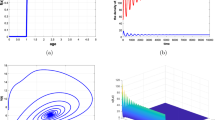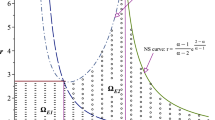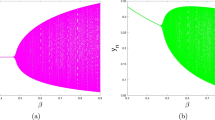Abstract
This article considers the optimal control of the harvesting of a prey-predator system in an environment. The species are assumed to be in steady state under diffusion and Voterra-Lotka type of interaction. They are harvested for economic profit, leading to reduction of growth rates; and the problem is to control the spatial distributions of harvests so as to optimize the return. Precise conditions are found so that the optimal control can be rigorously characterized as the solution of an optimality system of nonlinear elliptic partial differential equations. Moreover, a constructive approximation scheme for optimal control is given.
Similar content being viewed by others
References
S. Agmon, A. Douglis, and L. Nirenberg, Estimates near the boundary for solutions of elliptic partial differential equations satisfying general boundary conditions I, Comm. Pure Appl. Math., 12, 623–727, 1959.
H. T. Banks, Modeling and Control in Biomedial Sciences, Lecture Notes in Biomathematics, Vol. 6, Springer-Verlag, New York, 1975.
V. Barbu, Optimal Control of Variational Inequalities, Research Notes in Mathematics, Vol. 100, Pitman, London, 1984.
C. Clark, Mathematical Bioeconomics: The Optimal Management of Renewable Resources, Wiley, New York, 1976.
P. Fife, Mathematical Aspects of Reacting and Diffusing Systems, Lecture Notes in Biomathematics, Vol. 28, Springer-Verlag, New York, 1979.
G. Ladde, V. Lakshmikantham, and V. Vatsala, Monotone Iterative Techniques for Nonlinear Differential Equations, Pitman, Boston, 1985.
A. Leung, Monotone schemes for semilinear elliptic systems related to ecology, Math. Methods Appl. Sci., 4, 272–285, 1982.
A. Leung, Systems of Nonlinear Partial Differential Equations, Applications to Biology and Engineering, Kluwer, Dordrecht, 1989.
A. Leung and G. Fan, Existence of positive solutions for elliptic systems—degenerate and nondegenerate ecological models, J. Math. Anal. Appl., 151, 512–531, 1990.
A. Leung and S. Stojanovic, Optimal control for elliptic Volterra-Lotka equations, J. Math. Anal. Appl., 173, 603–619, 1993.
L. Li, Coexistence theorems of steady states for predator-prey interacting systems, Trans. Amer. Math. Soc., 305, 143–166, 1988.
J. L. Lions, Optimal Control of Systems Governed by Partial Differential Equations, Springer-Verlag, Berlin, 1971.
A. Okubo, Diffusion and Ecological problems: Mathematical Models, Springer-Verlag, Berlin, 1980.
S. Stojanovic, Optimal damping control and nonlinear elliptic systems, SIAM J. Control Optim., 29, 594–608, 1991.
Author information
Authors and Affiliations
Rights and permissions
About this article
Cite this article
Leung, A.W. Optimal harvesting-coefficient control of steady-state prey-predator diffusive Volterra-Lotka systems. Appl Math Optim 31, 219–241 (1995). https://doi.org/10.1007/BF01182789
Accepted:
Issue Date:
DOI: https://doi.org/10.1007/BF01182789




